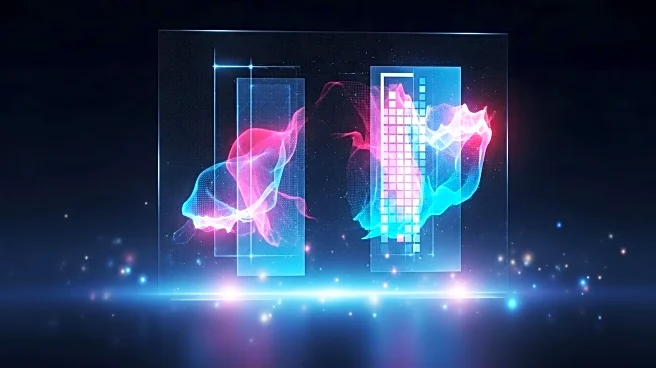What's Happening?
OpenAI has launched a new social media app called Sora, which has quickly risen to the top of app charts. The app, which is currently invite-only, allows users to create and share short-form videos generated by OpenAI's video language model, Sora. This development follows OpenAI's previous efforts to create a text-based social media platform. The app's content is entirely AI-generated, raising questions about copyright and content ownership. OpenAI CEO Sam Altman has emphasized the need for more infrastructure to support such innovations, citing the potential for significant societal impacts.
Why It's Important?
The launch of Sora represents a significant shift in the social media landscape, as it introduces a platform where all content is AI-generated. This could have profound implications for content creators, copyright holders, and the broader media industry. The app's rapid ascent in popularity suggests a strong consumer interest in AI-generated content, which could drive further innovation and competition in the tech industry. However, it also raises ethical and legal questions about content ownership and the potential for AI to replicate copyrighted material without consent.
What's Next?
As Sora continues to gain traction, OpenAI will likely face increased scrutiny from copyright holders and regulatory bodies. The company may need to address potential legal challenges related to the use of copyrighted material in its training data. Additionally, OpenAI's infrastructure expansion plans could impact local communities, as the company seeks to build more computing centers to support its growing operations. The tech industry and legal experts will be closely watching how these developments unfold.
Beyond the Headlines
The rise of AI-generated content platforms like Sora could lead to a reevaluation of traditional content creation and distribution models. This shift may prompt discussions about the role of AI in creative industries and the need for new regulatory frameworks to address emerging challenges. The potential for AI to democratize content creation by lowering barriers to entry could also have cultural implications, as more individuals gain access to powerful creative tools.









